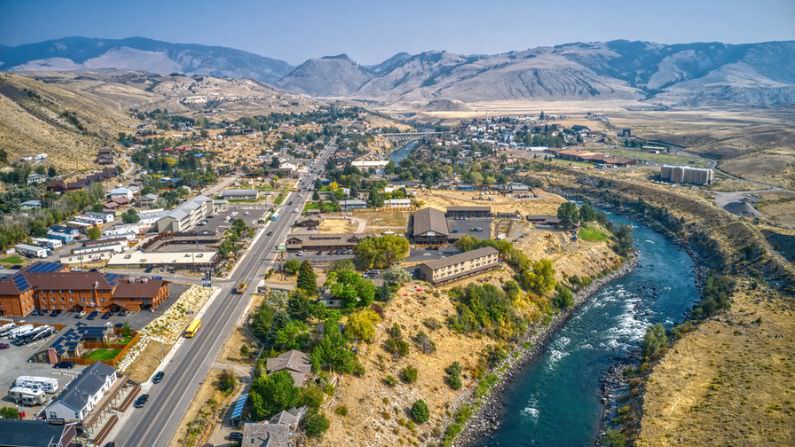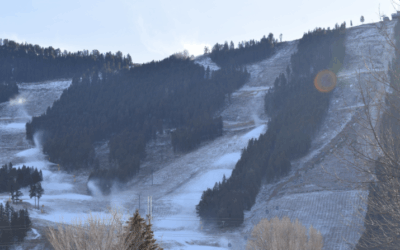Southern Montana made national news earlier this month as floodwaters from Yellowstone National Park damaged infrastructure and stranded neighborhoods. But now, most towns in the region are recovered and ready to take in tourists again. Sarah Ondrus is vice president of the Gardiner Chamber of Commerce and the owner of four local businesses. She said her community historically relies on summer and fall visitors, so it’s struggling to earn revenue right now.
“Nobody’s coming to town. I think that they think they cannot get here,” Ondrus said. “But actually, Highway 89 is completely open. We have full access from Livingston, Montana, and so at this time, we would just love to have people come and visit us.”
Ondrus said a typically slow day at her rafting company for this time of year yields 200 customers, but on a recent Monday, just 11 people showed up. Cancelations at hotels and vacation rentals are also common, and many seasonal employees have had to leave the area to find other opportunities. Ondrus employs about 30 people during the summer.
“About 12 had to leave because we could not promise them work and we did not know the volume that we would be dealing with as far as guests at this time,” she said.
Part of the problem is that Gardiner is cut off from Yellowstone National Park, and a permanent transportation route is still being planned out. However, the community has already rebuilt its water lines and bridges to give it access to other Montana destinations. The park housing building that fell into the Yellowstone River, which was captured in a video that went viral, was reportedly the one building in town that was a total loss.
“I do think the images definitely did not help the town, and I think that people across the U.S. still think that that that house falling into the river is representing our town and that’s what it looks like,” Ondrus said. “We’ve even had people make comments to us in emails that [say], ‘Your town is in shambles and we need to cancel because there’s no road access.’ Some people even said, ‘I have concerns for safety, so I need to cancel.’”
Because of a lack of visitation, Ondrus said now is a great time for Jackson locals—or tourists who prefer tranquility—to check out her community when crowds are atypically thin.
“The weather is gorgeous. It’s not hot, but it’s sunny. It’s not windy. The river’s running great. The hiking trails are open. Even some of the fishing accesses are open,” she said.
To offset economic losses, Gardiner businesses can also currently apply for state government grants. That’s something Ondrus said she hopes will continue through the end of the year.
“My personal wish is that we have some kind of funding or assistance that will get us through until that road opens for in and out travel,” she said. “If the assistance only helps, you know, just this summer, then what about the winter? What about the vacation rentals in the winter?”
Southern parts of Yellowstone are currently open under a license-plate-based entry system, and northern reaches, including some temporary transportation routes into Montana, may be opening in the coming months. For the National Park Service, rebuilding the infrastructure that was lost in the flooding could take years and cost billions of dollars, according to the Associated Press.






